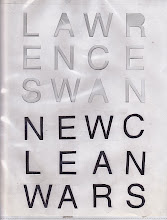Sunday School 6/15
Magi, Massacre, and Escape to Egypt
Matthew 2 in the New Revised Standard Version
No manger scene in Matthew. Luke has that story.
Enter the wise men from the East. Arabs? Persians? Zoroastrians? Whoever this Oriental intelligentsia represented their diplomatic skills were questionable, as they tell the sitting King of the Jews that they have come to pay homage to the new King of the Jews, whose star they are following. The star (Jupiter?) has signaled the time of the new king's birth, and Jewish prophecies tell the place, according to the priests and scribes Herod consults. The story of the magi shows that the world outside of Palestine is interested in the news of the new king, but also implies that the knowledge possessed by the magi has some authority or value (the incense trade moved through Judea, bringing cultural influences along with the myrrh and frankincense). Messianic expectation extended beyond Palestine, apparently.
The story of the massacre of the children, ordered by Herod, only appears in Matthew's book. Josephus didn't mention it in his histories, but he has other stories of the king murdering family members and rabbis. Herod's brutality and paranoia were well-known and Matthew's audience would have found it believable that he would order such an atrocity. Herod was the King of the Jews, but he was backed up by the Roman Empire, and he ultimately was Rome's servant. He was known for his remarkable building projects, financed by high taxes, including the Temple in Jerusalem, for which he appointed a High Priest. He had forty six leaders from the rabbinical council killed. He had a Roman eagle installed at the entrance, a symbol of oppression and sacrilege to the Jewish people that was smashed by students of the Torah, who Herod had arrested and burned alive. The priests and scribes Herod consulted about the new king the magi sought, were required to be loyal, or they would be killed.
Matthew's audience (the people who were listening to the story being read out loud) hated and feared the existing government, and understood that this power structure considered the new king to be a threat.
Here is a helpful account of Herod the Great and his significance in Jewish history: http://www.aish.com/jl/h/48942446.html
Typically, Matthew quotes scriptures to show that prophecy was "fulfilled" by these events, but dreams also have something to tell us. The magi are warned in a dream about Herod, Joseph is warned in a dream to escape to Egypt, and then Joseph is told in a dream to return to Israel, and the family settles in Nazareth. I suggest that the reader consult his/her own dreams relating to this story, for more insight.
Two men with a mission:
Matthew 2 in the New Revised Standard Version
No manger scene in Matthew. Luke has that story.
Enter the wise men from the East. Arabs? Persians? Zoroastrians? Whoever this Oriental intelligentsia represented their diplomatic skills were questionable, as they tell the sitting King of the Jews that they have come to pay homage to the new King of the Jews, whose star they are following. The star (Jupiter?) has signaled the time of the new king's birth, and Jewish prophecies tell the place, according to the priests and scribes Herod consults. The story of the magi shows that the world outside of Palestine is interested in the news of the new king, but also implies that the knowledge possessed by the magi has some authority or value (the incense trade moved through Judea, bringing cultural influences along with the myrrh and frankincense). Messianic expectation extended beyond Palestine, apparently.
The story of the massacre of the children, ordered by Herod, only appears in Matthew's book. Josephus didn't mention it in his histories, but he has other stories of the king murdering family members and rabbis. Herod's brutality and paranoia were well-known and Matthew's audience would have found it believable that he would order such an atrocity. Herod was the King of the Jews, but he was backed up by the Roman Empire, and he ultimately was Rome's servant. He was known for his remarkable building projects, financed by high taxes, including the Temple in Jerusalem, for which he appointed a High Priest. He had forty six leaders from the rabbinical council killed. He had a Roman eagle installed at the entrance, a symbol of oppression and sacrilege to the Jewish people that was smashed by students of the Torah, who Herod had arrested and burned alive. The priests and scribes Herod consulted about the new king the magi sought, were required to be loyal, or they would be killed.
Matthew's audience (the people who were listening to the story being read out loud) hated and feared the existing government, and understood that this power structure considered the new king to be a threat.
Here is a helpful account of Herod the Great and his significance in Jewish history: http://www.aish.com/jl/h/48942446.html
Typically, Matthew quotes scriptures to show that prophecy was "fulfilled" by these events, but dreams also have something to tell us. The magi are warned in a dream about Herod, Joseph is warned in a dream to escape to Egypt, and then Joseph is told in a dream to return to Israel, and the family settles in Nazareth. I suggest that the reader consult his/her own dreams relating to this story, for more insight.
Two men with a mission:



0 Comments:
Post a Comment
<< Home